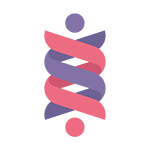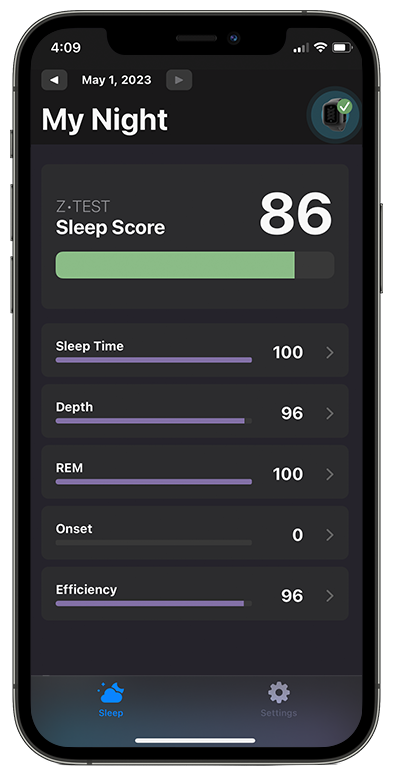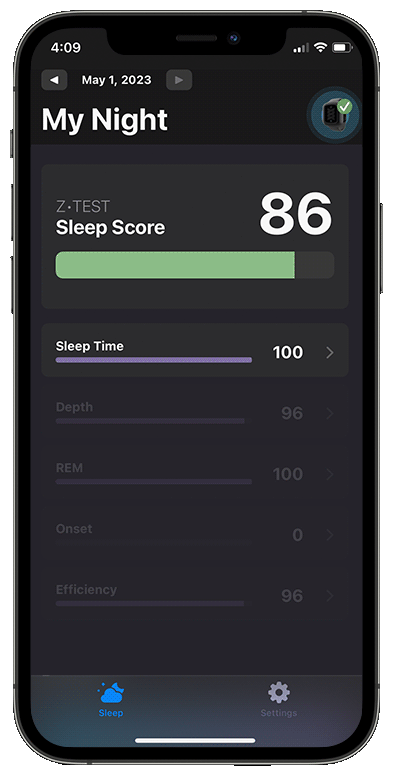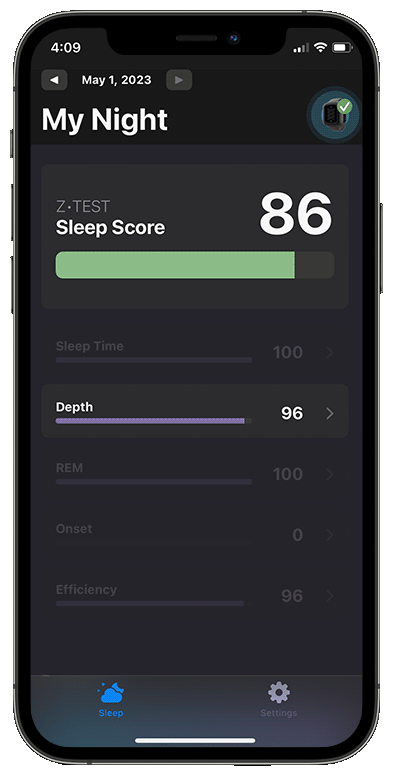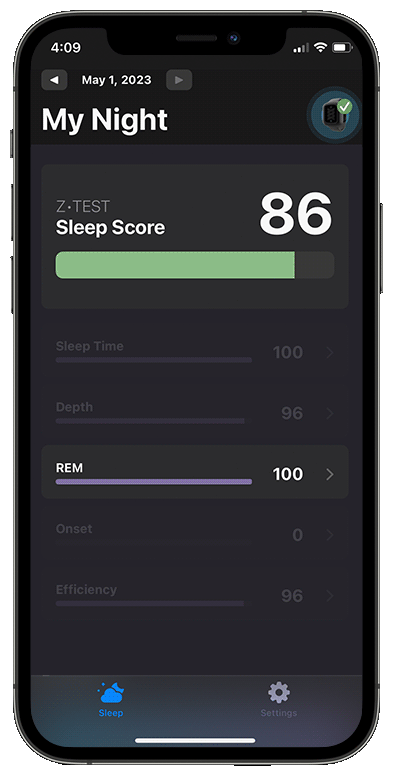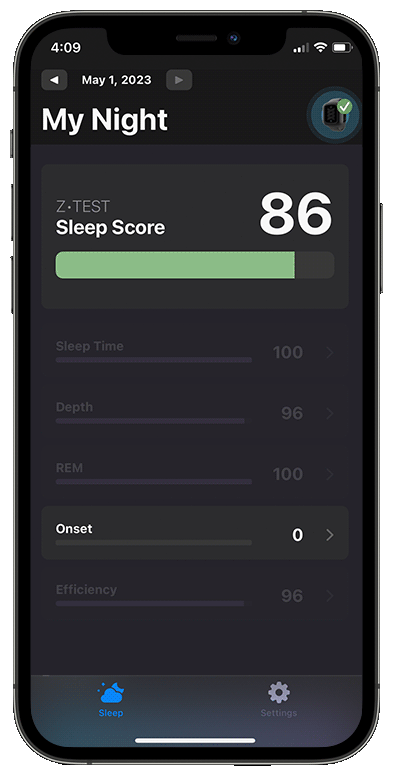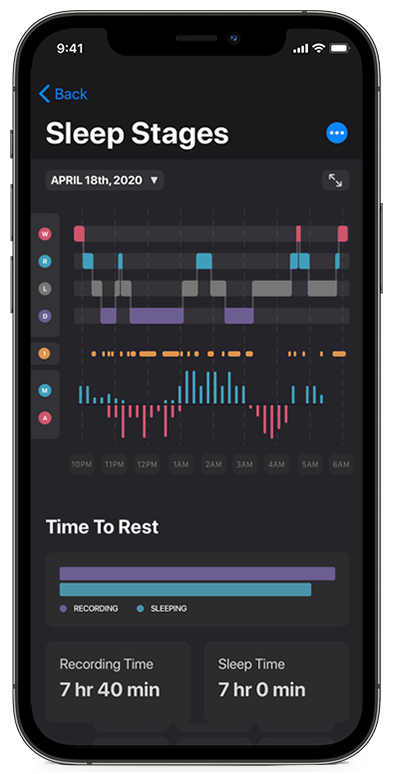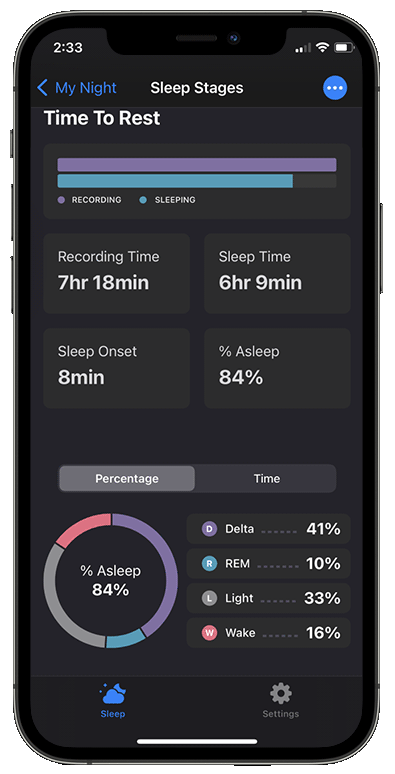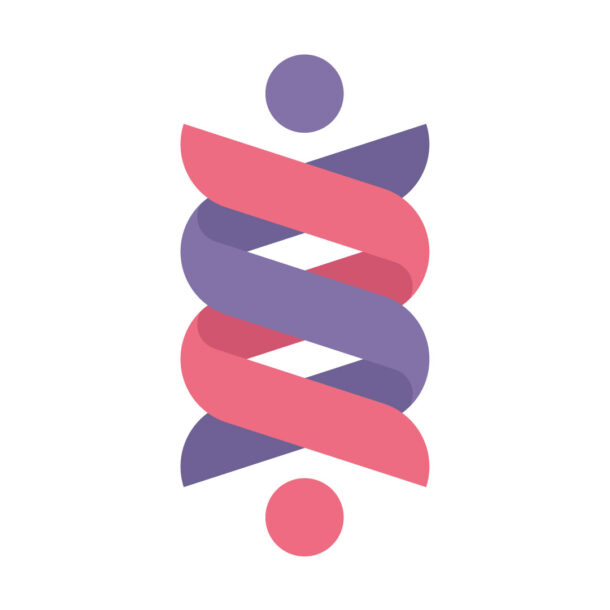How It Works
A Closed-Loop, Real-Time Feedback System
Personalized for Each Individual
The SOLTEC•HEALTH System has 3 major elements.
• The most important element is the Z•GEN™ Magnetic Conditioner, which provides the main benefits of improved sleep and reduced stress.
•The Z•TRACK™ Analyst monitors your sleep throughout the night and communicates with Z•GEN when an adjustment to the stimulus is required. It also measures your stress level during a daytime relaxation session.
• The SOLTEC•Z™ App receives and displays the data from Z•TRACK. The data is stored in a cloud-based database, which, with further analysis, personalizes Z•GEN’s stimuli to provide better results for you.
Promotes Deep Sleep
& Restoration
Since our nervous system evolved in the presence of the Earth’s magnetic field, it is of no surprise that it is responsive to magnetic frequencies.
The frequency ranges that produce Delta, or slow wave sleep, and REM sleep are within the range of frequencies produced by the Earth’s magnetic field.
Unfortunately, the Earth’s changing field is not timed with the exact stage of sleep each of us is experiencing.
Since Z•TRACK knows what stage of sleep you are in moment by moment, real time sleep stage enhancement can be delivered by Z•GEN. It produces frequencies consistent with your stage of sleep.
When your data suggests that you are moving into a different stage of sleep, Z•TRACK instructs Z•GEN to deliver those frequencies instead, enhancing your natural sleep stages.
Z•GEN
Adjustments Initiated by the User’s Natural Sleep Stages
Z•GEN is placed by the user’s feet, or under the bed close to the user’s feet for bedtime applications. It contains 2 magnets to produce varying magnetic frequencies. The magnets are enclosed in separate aluminum tubes, aligned vertically, to directionally orient the waveforms to produce the resulting magnetic field.
Actual magnets are used, as opposed to electromagnetism (EM), as the two stimuli are quite different when operating at low frequencies. The major implication is that EM can only produce low frequency waves by amplitude modulating faster frequencies (the carrier wave). The interaction of faster frequencies on neural structures, differs from the presence of only lower frequencies, in that the EM wave can produce unwanted effects as they interact with other neurologic structures. Conversely, magnets can operate at discrete lower frequencies, uncontaminated by higher frequencies, thereby only influencing the structures of interest. Furthermore, higher frequencies used in EM can potentially interact at a molecular level, impacting the ionic transfer necessary for normal neuronal and glial cell functioning.1
During operation, Z•GEN receives intermittent Bluetooth signals from the Z•TRACK Analyst. These signals instruct Z•GEN to run pre-defined protocols, which define each magnet’s movements and spatial orientation to produce the desired magnetic field containing the frequencies of interest. Protocol adjustments are made approximately 30 to 50 times during a sleep session, depending upon the length of the session. However, the accumulated duration of Bluetooth activity during the sleep session is only about one second, as very little information is transmitted.
1. Ye, H., Hendee, J., Ruan, J. et al. Neuron matters: neuromodulation with electromagnetic stimulation must consider neurons as dynamic identities. J NeuroEngineering Rehabil 19, 116 (2022). https://doi.org/10.1186/s12984-022-01094-4
“We experimented with several types of stimuli including sound, vibration, and electromagnetism. Sound and vibration worked extremely well for relaxation but could not be used during sleep for obvious reasons.
We also discovered that we could not use electromagnetism at the low frequencies we needed to employ, as the equipment would overheat. Further experimentation revealed that magnetism alone was ideal.
It took years of engineering to construct the necessary device capable of conditioning the user’s local environment to facilitate the desired effects.”
Dual Magnets
Capable of generating synchronous and asynchronous beat frequencies personalized to your sleep patterns.
Internal Lighting
The lights on Z•GEN will let you know if everything is connected and ready to start a session.
Z•GEN even has a night light feature. Now that’s smart.
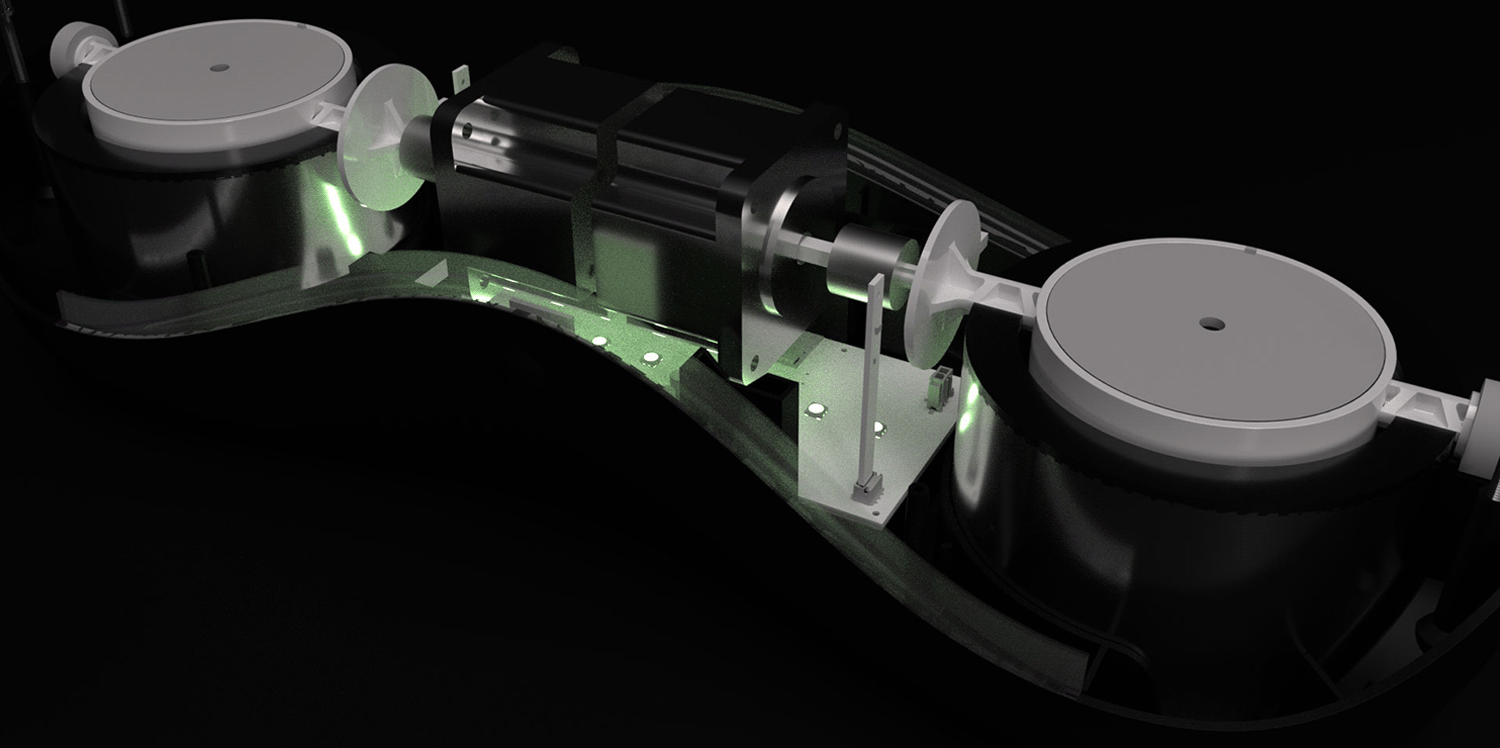
Z•TRACK
Working for You in Real Time
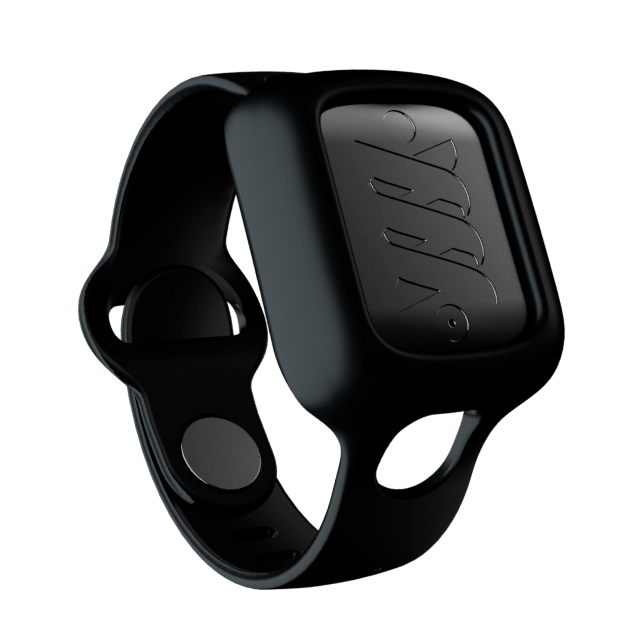
The Z•TRACK Analyst, worn on your wrist, is unlike any other tracker. It works with its counterpart, the Z•GEN™ Magnetic Conditioner, which sits under or by the foot of your bed.
At any given moment, and in real-time, Z•TRACK informs Z•GEN which frequencies to produce that influence your sleep or stress levels.
Z•GEN then generates safe, low-frequency waves associated with the various stages of sleep (light sleep, deep sleep, and dream sleep) or deep relaxation.
State-of-the-Art Sensor Technology for Precise Metrics
Z•TRACK monitors and analyzes several physiologic parameters.
These include motion, snoring sounds, blood oxygen levels, heart rate, and most importantly heart rate variability, also known as HRV.
HRV is key to both differentiating sleep stages and assessing stress levels. Unlike other wearables, Z•TRACK performs HRV analysis in both the time and frequency domains, which improves its’ sensitivity.
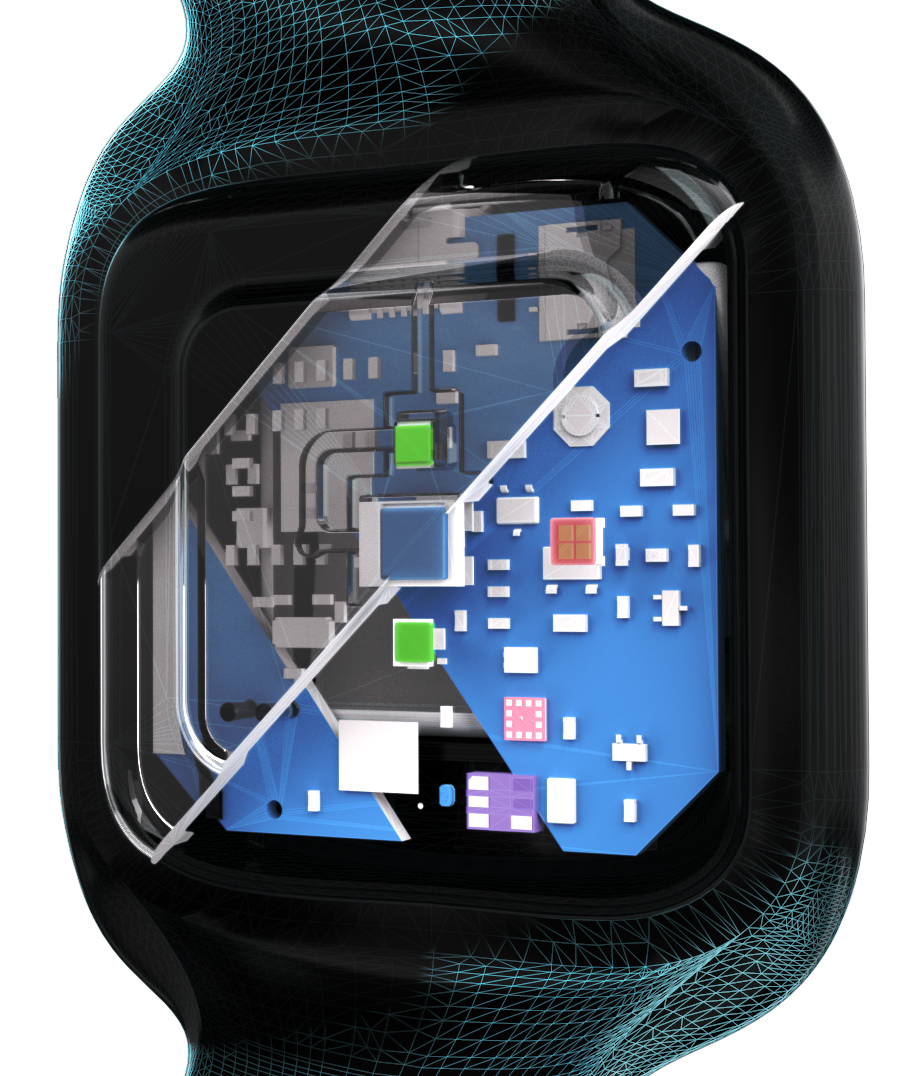

Heart rate variability (HRV) analysis for precise sleep staging
Blood oxygen monitoring with O2 drops

Motion / HRV determines sleep versus wake

Microphone records snoring to correlate with O2 drops
“Z•TRACK monitors your sleep throughout the night and communicates with Z•GEN when an adjustment to the stimulus is required.
Think of the SOLTEC System as a sleep supplement that conditions your environment.”
Dr. Dan Cohen
Neurologist
SOLTEC•Z
Our app was designed to show the user the results of system use at the end of each night. It focuses on sleep stage displays and the trended data from the recorded sessions. This data also informs the system on how to better integrate with each user’s own unique, natural sleep patterns.
The sleep stages report breaks down your night’s sleep in real time. Dividing what percentage and amount of time of each stage of sleep you were in. The graphic is called a sleep histogram. It displays the user’s state during their time in bed.
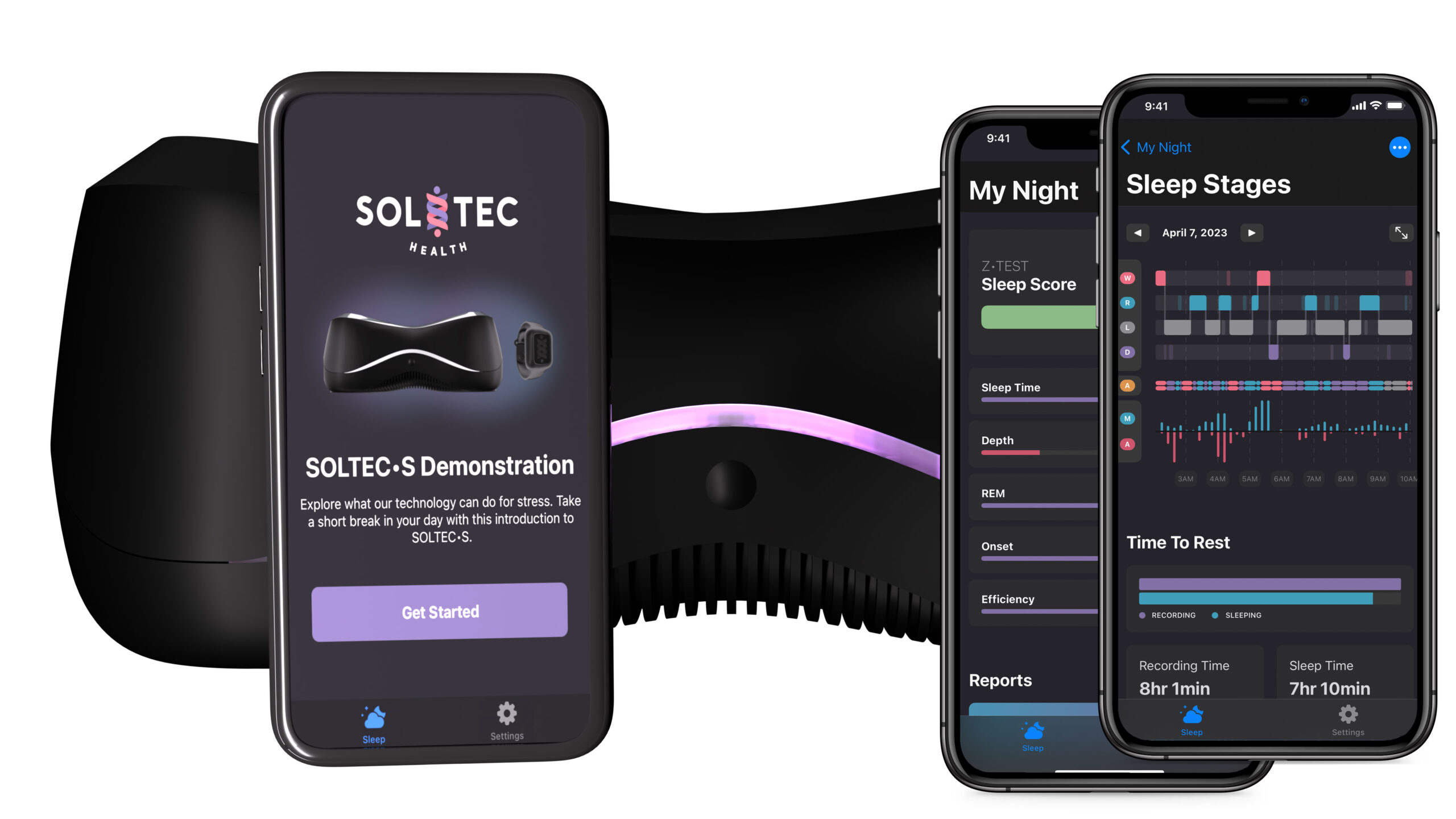
Join Us
Experience The Technology
Order
We have a limited quantity available for those innovative in spirit and interested in becoming the first to own a SOLTEC HEALTH System.
$1,999.00
Participate in a Research Study
$1,299.00
DEVELOPED BY SLEEP EXPERTS
The SOLTEC•Z™ App
Precisely monitors your sleep. Inspect your previous night’s sleep via the Z•TEST sleep score and sub scores, the commands that Z•TRACK issued to Z•GEN, and trend data from your recordings.
Z•TEST
Assesses your Sleep Time, Depth, REM, Onset, and Efficiency. The aggregate score is reported as a single score ranging from 0 to 100.
SLEEP TIME
Defined as total time spent sleeping, not simply time in bed.
DEPTH
Deep sleep is also called delta or slow wave sleep. During deep sleep, critical healing and repair processes are at work. As we age, deep sleep typically declines substantially.
REM
The stage of sleep associated with procedural learning and memory.
ONSET
The time it takes to fall asleep and remain asleep for at least 3 minutes.
EFFICIENCY
Reveals how efficient your sleep time is plus how much or little your sleep is disrupted throughout the night.
What is a Good Sleep Score?
SLEEP STAGES REPORT
Provides a deeper dive into your sleep data. The sleep histogram is an illustrative diagram that shows the timing of the different stages of sleep (W – Wake, R – REM sleep, L – Light sleep, and D – Delta sleep).
Benchmark your typical sleep patterns, as compared to INS (Ideal Normal Sleep) data.
INS is defined as the normal sleep pattern of a normal, healthy 20-year-old human being who also routinely observes healthy sleep practices. Such individuals sleep approximately 7 ½ to 8 hours per night. About 50% of their sleep time is spent equally divided between Delta (deep) and REM (dream) sleep (2 hours of each), with the remaining 50% (4 hours) spent in light sleep.
THE OVALS
Represent the frequency adjustments that Z•GEN has made based on instructions from Z•TRACK. Pink corresponds to sleep induction, purple to enhance deep sleep and blue for REM sleep. M is for movements and A is for arousals, which indicate rapid changes in your heart rate.
DETAILS
Learn the percentage of the recording and time spent in Delta, REM, and Light Sleep, and Wake. Reviewing this information regularly will give you a deeper understanding of your sleep.
Stages of Sleep: The Ultimate Guide
TRACK YOUR SLEEP TRENDS
Your sleep metrics are reported after each nightly session and trended over longer time periods. View how your Sleep Time, Depth, or Efficiency have progressed over a week, month, quarter, or year. Never has sleep data been this complete and precise. All your data is stored in a secure, encrypted database.
SOLTEC•Z also monitors your blood oxygen levels and records snoring sounds and displays when these events are associated with oxygen drops. Such sleep disruptions can fragment your sleep by causing sleep arousals and awakenings.
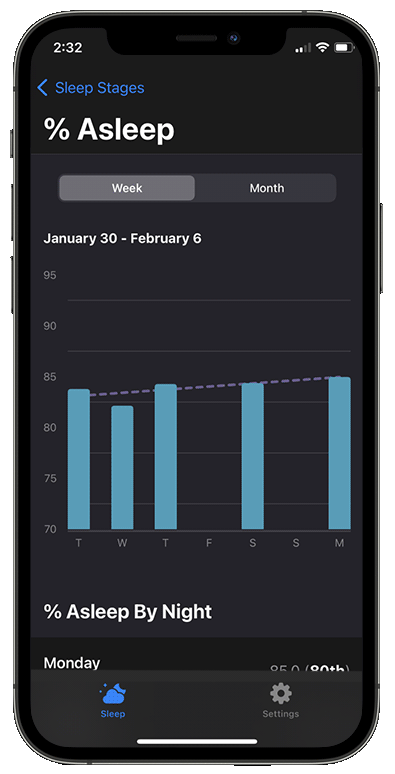
Sleep is Integral to Health
Poor Sleep Endangers Us All
An individual that sleeps on average less than six hours per night has a 13 per cent higher mortality risk than an individual sleeping between seven and nine hours, which is considered as the healthy amount of sleep.
What to Expect
Sleep deteriorates over time; Restoration takes time
• During the first three nights of recording, the system collects your baseline sleep data to determine the length of your sleep cycles and the sleep stage patterns within each sleep cycle. From there, the system will continue to learn and adjust to your patterns and provide ongoing benefits.
• Early results may take several weeks or longer. Most importantly, pay attention to how well you slept and how you feel during the day, independent of the scores. Are you experiencing fewer awakenings during the night or more energy during the day? These signs will let you know if the system is working for you.
- WARNING: Maintain a safe distance of at least six inches between the SOLTEC•HEALTH System and a pacemaker, implantable cardioverter defibrillator, deep brain stimulator or other active implantable device. The System may interfere with these devices and increase the risk of injury, illness or death. Consult with a medical provider on whether the System could affect your implantable medical device.
- CAUTION: The SOLTEC•HEALTH System has not been tested during pregnancy. Consult with a medical provider prior to use during pregnancy.
- CAUTION: The SOLTEC•HEALTH System has not been tested on persons under the age of 18. Consult with a medical provider before use by anyone under the age of 18.This includes situations where beds are shared with persons under the age of 18.
- DISCLAIMER: The SOLTEC•HEALTH System is not intended to diagnose, treat, cure or prevent disease. It is not a substitute for professional medical advice. Individual results vary. Consult with a medical provider for solutions that may be appropriate for you.
The SOLTEC•HEALTH System is not intended to diagnose, treat, cure or prevent disease and should not be used as a substitute for professional medical advice, diagnosis or treatment. All content available through the products and services of SOLTEC HEALTH is for general informational purposes only. This product and system are protected by one or more of the following patents: U.S. Pat. Nos. 7,918,308; 8,668,045; 9,949,004; 11,478,604; and other U.S. and foreign patents pending.
